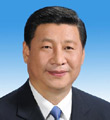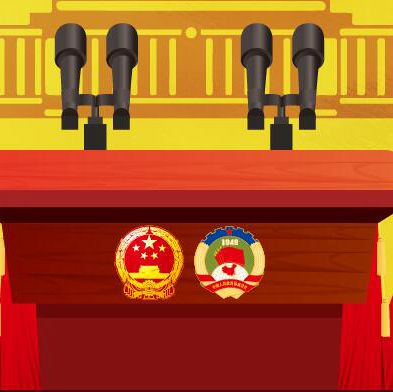CPPCC FAQs
- The Chinese People's Political Consultative Conference (CPPCC) was jointly founded by the Communist Party of China (CPC), non-Communist political parties, the democrats with no party affiliations, people's organizations and public figures prior to the People's Republic of China.
- The charter of CPPCC stipulates that the Chinese People's Political Consultative Conference is a united front organization with wide ranging representation. It is an important organ of multi-party cooperation and political consultation under the leadership of the CPC.
- Democratic supervision covers areas such as the implementation of the Constitution, laws and state regulations.
- The primary functions of the CPPCC include conducting political consultation and democratic supervision, and organizing member parties, organizations and people from various ethnic groups to discuss and manage state affairs.
- CPPCC members (including members of both the National Committee and local committees at various levels) have following rights.
- Members of the CPPCC National Committee and local committees have the right to vote and stand for election at meetings of CPPCC. They also have the right to voice their opinions and offer criticism on the work of CPPCC.
- In March 1993, over 20 presidents and general managers from private businesses and joint ventures attended the First Plenary Session of the Eighth National Committee of CPPCC, representing the non-state economic sector.
- Motions from CPPCC members differ from bills of people's congress deputies. The people's congress is a body of power. A bill has legal effect once it has been adopted.
- Political consultation means that CPPCC conducts consultations on the country's basic policies and important issues relating to political, economic, cultural and social affairs before a decision is made and implemented.
- Resolutions adopted by the plenary sessions of the CPPCC National Committee or Standing Committee, etc..
- Various non-Communist political parties, democrats with no party affiliations and patriotic people are invited to take part in discussions on the management of state affairs.
- All political parties and public organizations that support the CPPCC charter may sit on the National Committee, after deliberation and approval by the Standing Committee of the CPPCC National Committee.
Highlights of the Sessions >>
- Full text: Work report of NPC Standing Committee
- Full text: Report on China's economic, social development plan
- Full text: Report on China's central, local budgets
- Full text: Report on the Work of the Government
- Highlights of work reports from SPC and SPP
- Xi orders breakthrough in military theory
China.org.cn Exclusives >>
NPC deputy: Wind turbine manufacturing not hurt by overcapacity

- Zhang Chuanwei, an NPC deputy and an industrial figure, dismissed the allegation that overcapacity is bogging down China's wind turbine manufacturing sector.








